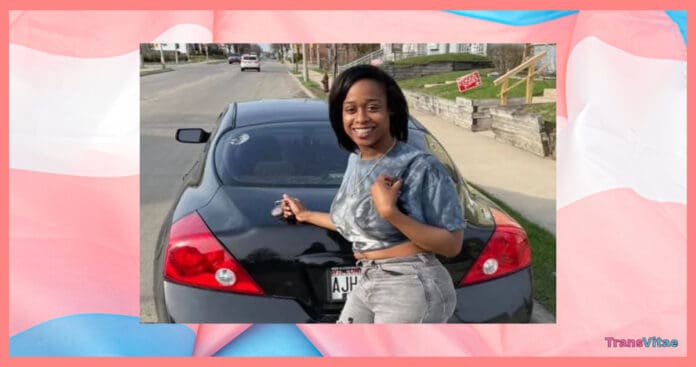In a case that has gripped Milwaukee and resonated deeply within the transgender community, a jury reached a verdict in the trial of Cordell Howze, accused of killing Cashay Henderson, a Black transgender woman, in 2023. On June 10, 2024, the jury found Howze guilty on all counts, including 1st-Degree Intentional Homicide, Possession of a Firearm by a Convicted Felon, and Arson. The sentencing is scheduled for August 9.
During the trial, Howze testified that he was friends with Henderson and did not know she was transgender. “She was a good friend of mine,” he stated. “It wasn’t a sexual relationship, sir. We had mutual respect.” However, prosecutors presented cellphone records showing Howze searched for “Milwaukee transgender escort” on the day of Henderson’s murder and recorded a video posthumously labeling her the devil.
The trial featured disturbing evidence, including videos recorded by Howze inside Henderson’s apartment after her death. Howze admitted it was him in the videos but denied killing Henderson, claiming he was “conducting an investigation.” He also repeatedly stated that he did not recall the events of that night.
Prosecutors argued that the footage, combined with Howze’s internet searches and location data, provided a clear narrative of the crime. Videos showed Howze inside Henderson’s home with her lifeless body visible, taking her Rolex watch and credit cards.
The trial and its outcome have had a profound impact on Milwaukee’s LGBTQ+ community. Close friends of Henderson, Akeevia Green and Nevaeh Conery, attended the week-long trial, which included graphic and heart-wrenching testimonies and evidence. “It really broke my heart,” Green said after the verdict. “My friend Cashay can rest now.”
“She had a smile that would light up a room,” Conery recalled. “She was a woman. A beautiful woman. And her legacy will live on.”
Who Was Cashay Henderson?
Cashay Henderson, originally from Chicago, was an active member of a support group for Black transgender women. Family members remembered her as an outgoing and dominant personality who was constantly on the move, making friends, and bringing joy to those around her. Her cousin, Beck, described Henderson as “independent probably since she could walk,” recounting how she put thought and effort into her appearance even as a child.
Henderson began her transition around the age of 13 or 14, and her family supported her without hesitation. Beck, now living in California, said Henderson moved to Milwaukee to seek better opportunities and was proud of her achievements, including purchasing a new car and actively participating in various community groups.
For five years, Henderson was a member of “Sisters Helping Each Other Battle Adversity,” a support group for Black transgender women. A social media post from the group described her as “inspiring to many of our ladies” and “nothing less than a joy to be around.”
A Rising Trend of Violence
Henderson’s death is part of a troubling pattern of violence against Black transgender women. According to the Human Rights Campaign, at least 32 transgender or gender non-conforming individuals died by homicide in the U.S. in 2023, with the majority being Black and Latina transgender women.
Henderson’s murder followed other recent tragic deaths in Milwaukee’s LGBTQ+ community, including Brazil Johnson and Regina “Mya” Allen. These incidents have sparked fear and calls for action among community members and allies. Around 40 people attended a vigil and town hall meeting for Henderson, Johnson, and Allen to discuss the difficulties and dangers transgender people face.
A Call for Change
Henderson’s death underscores the need for greater protection and acceptance for transgender individuals, especially Black transgender women, who face disproportionate violence and discrimination. Advocacy groups emphasize the importance of addressing systemic issues that marginalize transgender people, such as lack of family acceptance, unequal opportunities in education and employment, and biases within the justice system.
These factors contribute to increased risks for intimate partner violence, physical and mental health disparities, poverty, homelessness, and other challenges faced by transgender individuals. The rise in anti-trans rhetoric and policies only exacerbates these issues, highlighting the urgent need for societal change.
As Milwaukee’s LGBTQ+ community mourns the loss of Cashay Henderson, her legacy continues to inspire those who knew her. Her friends and family remember her as a vibrant, independent, and beautiful woman whose light shone brightly. “Cashay will light up the room and Cashay will own the room,” Beck said.
The conviction of Cordell Howze brings a measure of justice, but the pain of Henderson’s loss remains. Her story is a powerful reminder of the ongoing struggle for equality and safety for transgender individuals. The community’s response to her tragic death calls for continued advocacy, support, and love for transgender people, ensuring that their lives and contributions are valued and protected.
Moving Forward
As we await Howze’s sentencing, the focus shifts to preventing future tragedies and supporting the transgender community. Advocacy groups, allies, and individuals must continue to push for inclusive policies, comprehensive support systems, and public education to foster acceptance and understanding.
Cashay Henderson’s life, while cut short, serves as a beacon of resilience and hope. Her journey reflects the strength and determination of many transgender individuals who navigate a world that often does not accept them. In honoring her memory, we must commit to creating a safer, more inclusive society where everyone can live authentically and without fear.


